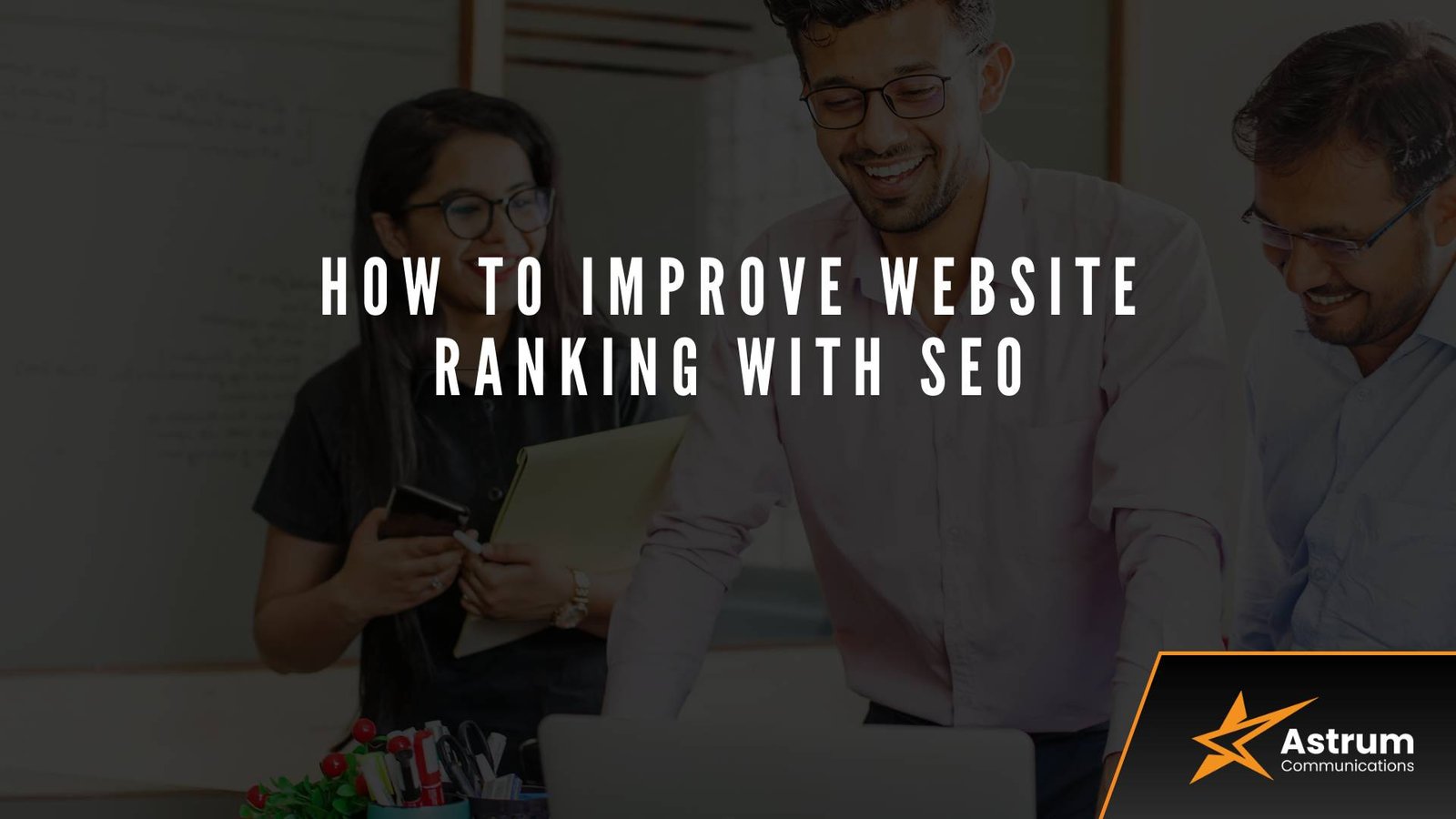Improving website ranking with SEO involves enhancing your site’s relevance and authority. By focusing on topical authority and optimizing for entities, you can create content that resonates with both users and search engines, ultimately boosting your visibility and driving organic traffic.
Table of Contents
ToggleConducting Keyword Research and Competitor Analysis
Conducting keyword research and competitor analysis is essential for improving website ranking through SEO. Start by identifying relevant keywords that align with your content and target audience. Focus on terms that reflect your niche, as this establishes topical authority—demonstrating expertise in specific subjects. Use tools to analyze competitors’ keywords, content strategies, and backlinks. This insight helps you understand what works and highlights gaps you can fill. Evaluating competitor websites can reveal opportunities to create more valuable content, enhancing your site’s relevance and authority in search engines. By strategically aligning your content with well-researched keywords and understanding your competition, you can effectively boost your website’s ranking and visibility online.
Optimizing On-Page Elements (Titles, Meta Descriptions, Headers)
Optimizing on-page elements such as titles, meta descriptions, and headers is essential for improving website rankings. Titles should clearly reflect the page’s content and include relevant keywords that indicate the topic’s authority. Meta descriptions, while not a ranking factor themselves, should provide a compelling summary that encourages clicks. Use headers (H1, H2, H3) to structure content logically, making it easier for both search engines and users to understand the information. By focusing on topical relevance and entity SEO, you can enhance the perceived authority of your content. This holistic approach not only improves user experience but also signals to search engines that your site is a reliable source of information, ultimately boosting its visibility in search results.
Creating High-Quality Content with Target Keywords
Creating high-quality content with target keywords is essential for improving website ranking through SEO. Start by researching topics relevant to your audience and industry, ensuring your content addresses their needs. Incorporate target keywords naturally throughout your writing, focusing on enhancing user experience rather than simply optimizing for search engines. Establish topical authority by covering subjects comprehensively, providing valuable insights and unique perspectives.
Entity SEO comes into play by making your content relevant to particular entities—people, places, or concepts—allowing search engines to connect your content with user queries more effectively. By consistently producing informative and engaging content, you’ll not only attract more visitors but also build trust and credibility, ultimately boosting your website’s ranking in search results. Focus on quality, relevance, and coherence to create content that resonates with both users and search engines.
Building Backlinks from Reputable Websites
Building backlinks from reputable websites is a crucial strategy for improving your site’s SEO and increasing its ranking. High-quality backlinks signal to search engines that your content is trustworthy and relevant. Prioritize partnerships with websites in your niche to enhance topical authority; when your site is linked by reputable sources, it establishes your expertise in that area. Focus on creating valuable and informative content that others want to reference, which boosts the chances of earning organic backlinks. Additionally, engaging with online communities and contributing guest posts can help foster relationships and drive traffic. Overall, earning backlinks from high-authority sites not only enhances your website’s visibility but also supports your overall SEO strategy, improving your ranking in search engine results.
Improving Site Speed and Mobile Usability
Improving site speed and mobile usability are essential for enhancing website ranking through SEO. A fast-loading site provides a better user experience, reducing bounce rates and keeping visitors engaged. Mobile usability ensures that your website is accessible and functional on various devices, catering to the growing number of mobile users. Both factors contribute to your site’s authority in relevant topics, as search engines prioritize sites that are user-friendly and responsive. By optimizing your site’s performance and mobile experience, you signal to search engines that your content is valuable and trustworthy, ultimately boosting your rankings. Consistent improvements in these areas can establish your website as an authoritative source within your niche, fostering greater engagement and higher visibility online.
Using Structured Data and Schema Markup
Structured data and schema markup play a significant role in enhancing a website’s SEO performance. By organizing information in a way that search engines can easily understand, you improve the chances of your content being displayed prominently in search results. This clear labeling of content helps search engines recognize the main topics and entities of your site, contributing to topical authority. When your site is considered an authority on a subject, it can lead to higher rankings. Implementing schema markup not only aids in better indexing but can also enable enhanced search features, like rich snippets, which attract more clicks. In summary, using structured data effectively supports SEO efforts by clarifying content for search engines and establishing your site as a credible source of information.
Tracking SEO Performance with Google Analytics and Search Console
Tracking SEO performance using Google Analytics and Search Console is essential for understanding how your website ranks and draws traffic. Google Analytics provides insights into user behavior, helping you identify which content resonates with visitors. By analyzing metrics such as bounce rate and session duration, you can gauge the effectiveness of your SEO strategies.
Search Console offers valuable data about your site’s visibility in search results, highlighting queries that bring traffic and areas for improvement. By focusing on topical authority, you can establish your site as a reliable source in your niche. Combining these tools helps you refine your content strategy, ensuring it aligns with relevant topics and enhances your entity SEO. This holistic approach ultimately leads to improved website rankings and a better user experience.
Conclusion
In conclusion, conducting thorough keyword research and competitor analysis is vital for improving your website’s SEO ranking. By identifying relevant keywords and understanding your competitors, you can establish topical authority and optimize your content for search engines. This approach not only enhances visibility but also builds your site’s credibility. At Astrum Communications, we specialize in helping businesses navigate these processes effectively, ensuring your online presence thrives in a competitive landscape. Let us partner with you to elevate your digital marketing strategies.


